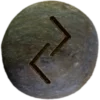Last Updated on December 19, 2024
Table of Contents


Sigmund (pronounced SIG-moond), a legendary figure in Norse mythology ![]() , was the son of King Völsung. He appears prominently in the Völsunga Saga, a medieval Icelandic text detailing the history of the Völsung clan. Sigmund’s life was marked by extraordinary events, fierce loyalty to his family, and his role in the shaping of heroic tales.
, was the son of King Völsung. He appears prominently in the Völsunga Saga, a medieval Icelandic text detailing the history of the Völsung clan. Sigmund’s life was marked by extraordinary events, fierce loyalty to his family, and his role in the shaping of heroic tales.
Sigmund’s story begins in the great hall of King Völsung, where he witnessed the divine intervention of Odin. The god planted the magical sword Gram (pronounced GRAHM) into the trunk of the great tree Bárnstokkr, declaring it would belong only to the man strong enough to remove it. Sigmund succeeded, proving his destiny as a hero. Gram would later serve him in battles and trials.
After King Völsung’s death at the hands of the treacherous King Siggeir, Sigmund survived and began plotting vengeance. He went into exile with his sister Signý (pronounced SEEG-nee), who helped him raise an army against their enemies. His cunning, strength, and unyielding spirit defined his character throughout the saga.
Sigmund’s heroics culminate in his role as the father of Sigurd the Dragon Slayer, one of Norse mythology’s most celebrated figures. Although he met his end during a battle with King Lyngvi, Odin himself shattered Gram, signaling the gods’ will. Sigmund’s legacy lived on through Sigurd, ensuring his place in the mythic tradition of the Völsung lineage.
Elder Futhark Runes Associated with Sigmund
The runes Tiwaz (ᛏ) and Ūruz (ᚢ) reflect Sigmund’s qualities. ![]()
Tiwaz, symbolizing courage and divine justice, mirrors Sigmund’s heroic resolve and Odin’s influence in his destiny.
Ūruz, representing strength and perseverance, echoes Sigmund’s enduring spirit in battles and his loyalty to family.
The Importance of Sigmund to Asatruar
To Asatruar, Sigmund exemplifies honor, resilience, and loyalty to kin. His story reminds practitioners of the importance of facing challenges with determination. Sigmund’s connection to Odin and his role as a father to Sigurd underscore the intertwining of mortal deeds and divine will. His tale inspires Asatruar to embrace their heritage and live with strength and courage.


